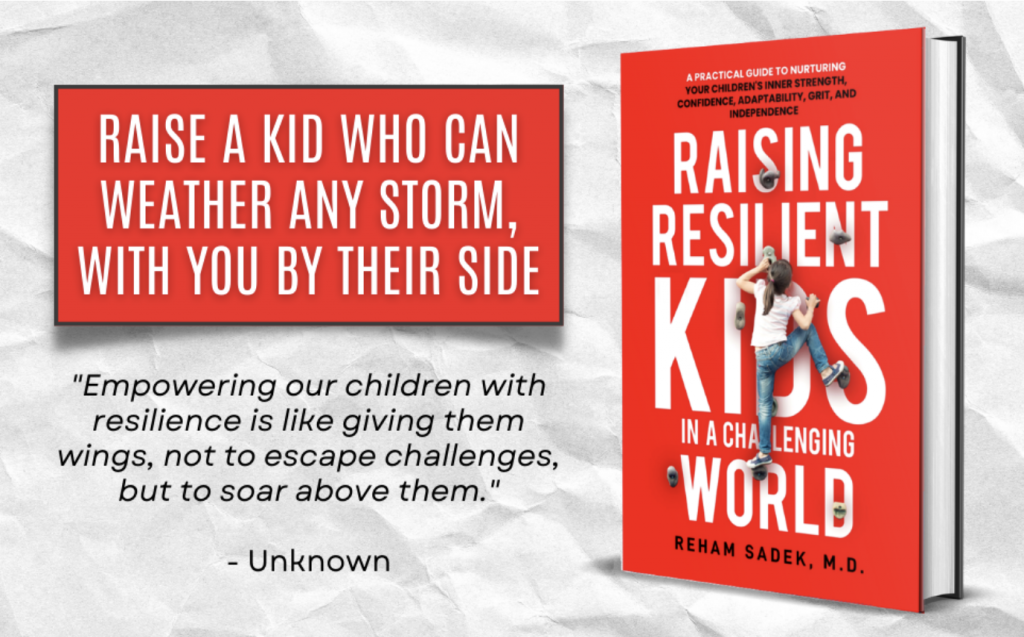
Raising Resilient Kids in a Challenging World – Reham Sadek

As a parent constantly striving to prepare my children for the challenges of life, I found “Raising Resilient Kids in a Challenging World” to be a breath of fresh air. The book delivers exactly what it promises, a practical guide that doesn’t rely on gimmicks or overwhelming theories. Instead, it offers straightforward, actionable advice that any parent can incorporate into their daily routines. What immediately resonated with me was the idea that resilience is a skill that can be nurtured through everyday experiences. The author Reham takes a compassionate yet realistic approach, acknowledging the natural potential children have for strength and tenacity, while emphasizing the importance of parental guidance in unlocking that potential. I appreciated how the book encourages parents to balance their roles as protectors and teachers, ensuring we don’t unintentionally shield our kids so much that they never learn how to stand on their own.
One of my favorite sections of the book dives into the three key skills every child needs to build resilience. The strategies are simple but profound, ranging from helping children develop a growth mindset to teaching them how to reframe failure as a learning opportunity. The examples provided felt relatable, and I found myself reflecting on how I could implement these lessons with my own children. Another standout chapter addresses the role of technology and social media in cultivating resilience. Initially, I was skeptical about this topic, as we often hear about the negative impact of screen time on kids. However, Reham offers a refreshing perspective, highlighting how technology, when used thoughtfully, can actually help children develop problem-solving skills and a sense of community.
I also found the discussion on ACEs (Adverse Childhood Experiences) particularly enlightening as it was my first time reading on this topic. It broadened my understanding of how early-life challenges can shape a child’s emotional and cognitive development, and more importantly, how resilience can serve as a protective buffer. One thing, I appreciated most about this book is its practicality, the strategies don’t require hours of preparation or a PhD in psychology. Instead, they are rooted in genuine connection, communication, and an understanding of your child’s individual needs.
By the time I finished, I felt empowered, not overwhelmed, to guide my kids toward becoming self-reliant, adaptable individuals. “Raising Resilient Kids in a Challenging World” isn’t just a parenting guide; it’s a resource I’ll return to time and again as my children grow. I highly recommend it to parents looking to build strong foundations for their kids’ futures.